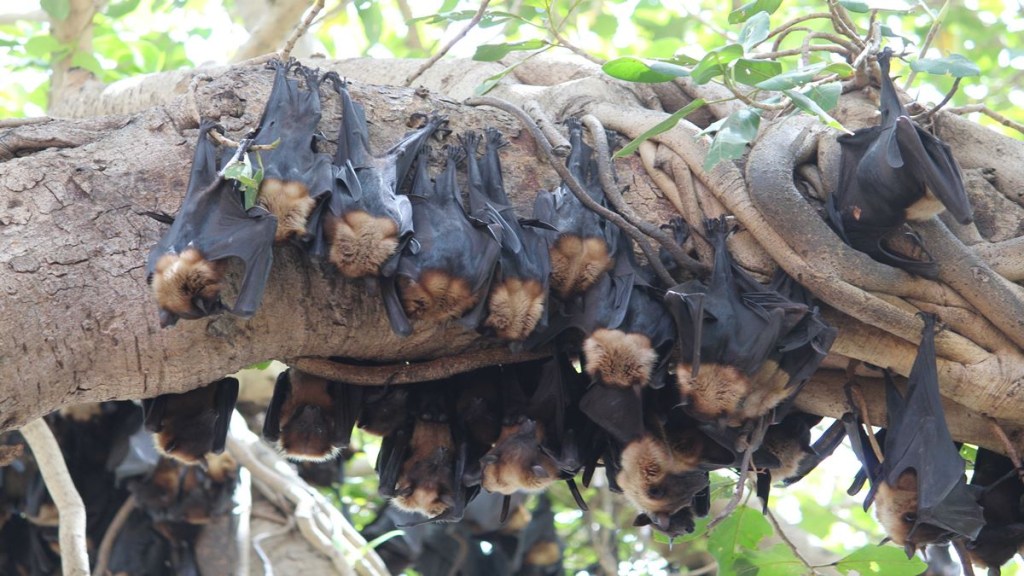The University of Oxford on Thursday announced that it has started the human testing of an experimental vaccine against the deadly Nipah virus that led to outbreaks in India’s Kerala state and other parts of Asia.
There is no vaccine yet for the deadly virus. The first participants in the Oxford trial received doses of the vaccine over the last week. The shot is based on the same technology as the one used in AstraZeneca and Serum Institute of India’s COVID-19 shots.
“This is the first-in-human trial of the ChAdOx1 NipahB vaccine, being developed by researchers at the University of Oxford’s Pandemic Sciences Institute. Fifty-one people aged 18 to 55 will participate in the trial, which will be led by the Oxford Vaccine Group and is funded by the Coalition for Epidemic Preparedness Innovations (CEPI),” the University said in a statement.
According to a report by news agency Reuters, further trials are expected to follow in a Nipah-affected country.
“Nipah has epidemic potential, with its fruit bat hosts found in areas home to over two billion people. This trial is a step forward in efforts to build a suite of tools to protect against this killer virus,” said Dr In-Kyu Yoon, an executive at the Coalition for Epidemic Preparedness Innovations (CEPI).
The trial is led by Oxford Vaccine Group and funded by CEPI, a global coalition that supports the development of vaccines against emerging infectious diseases.
Moderna in 2022 also started an early-stage clinical trial of a Nipah virus vaccine, which it co-developed with the U.S.’ National Institute of Allergy and Infectious Diseases.
What you need to know about this experimental vaccine?
In its statement, the university stated that the vaccine uses the same adenovirus vector as the Oxford AstraZeneca COVID-19 vaccine to target a component of the Nipah virus. The researchers hope this will lead to an immune response against Nipah virus.
Moreover, this is the first Phase I clinical trial of the ChAdOx1 NipahB vaccine, and therefore the first time the vaccine has been administered to humans.
What has happened so far?
First clinical trial participants received doses of the ChAdOx1 NipahB vaccine over the last week at the University of Oxford.
The 51-patient early-stage trial will take place in Oxford and will examine the safety and immune response of the vaccine in people aged 18 to 55 years.
The project will run over the next 18 months, with further trials expected to follow in a Nipah-affected country.
The vaccine trial is a key part of the Pandemic Sciences Institute’s Henipavirus Programme, which is working with partners in endemic countries to develop practical tools that will ensure the world is better prepared for future outbreaks. According to the University’s statement, this includes providing world-leading biomedical research and developing ethical frameworks to minimise stigma from the disease.
What is Nipah Virus?
Nipah virus (NiV) is a zoonotic virus that spreads between animals and people. According to the Centers for Disease Control and Population (CDC), fruit bats, also called flying foxes, are the animal reservoir for NiV in nature. Nipah was first identified about 25 years ago in Malaysia and has led to outbreaks in Bangladesh, India and Singapore.
In September 2023, India’s Kerala state witnessed its fourth Nipah outbreak in five years, with six people infected and two deaths. In the recent outbreak, virus was related to but distinct from the strain circulating in Bangladesh.
According to the World Health Organization (WHO), the infection can cause fever, headache, cough and difficulty breathing, with brain swelling likely to follow. Its fatality rate is estimated at 40% to 75%, WHO states.
Moreover, severe disease is fatal in up to 75% of cases and survivors can be left with long-term neurological complications. There are currently no approved vaccines or treatments for Nipah virus infection.







